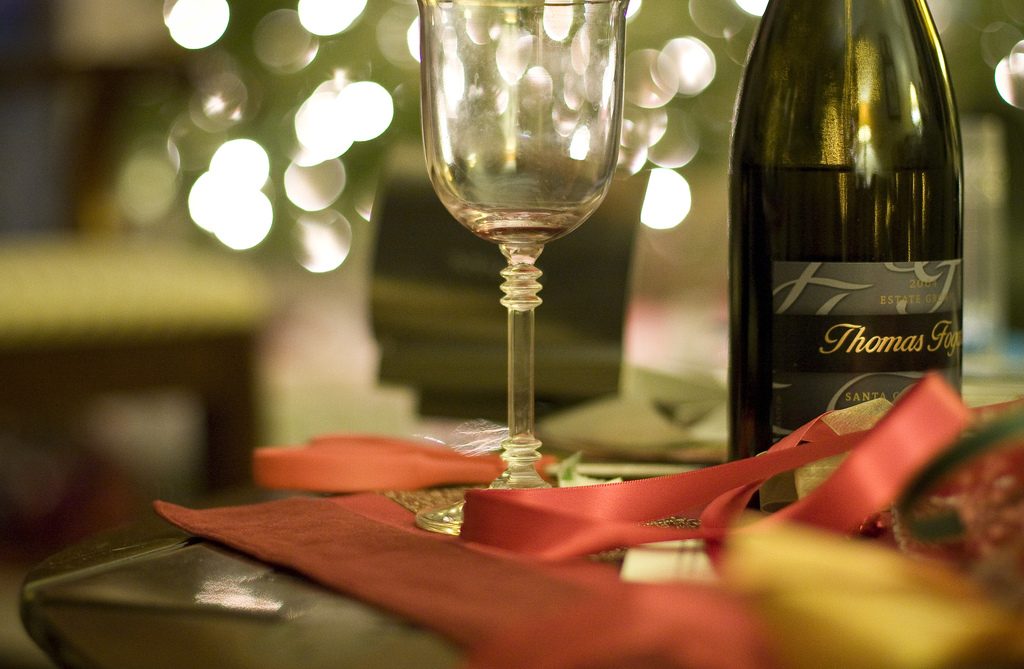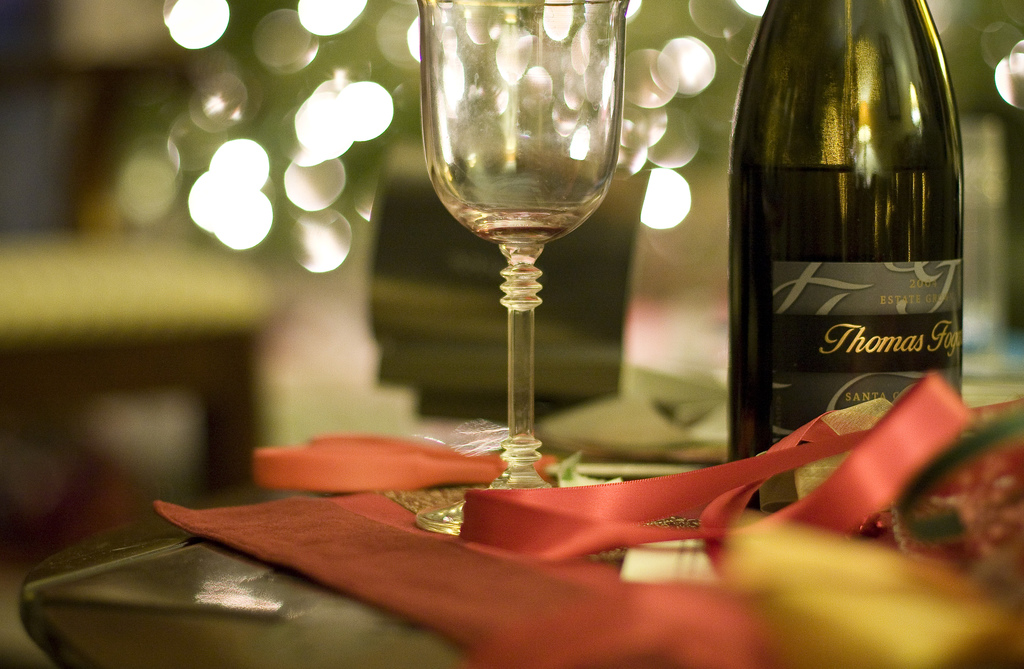
In The Power of Habit, Charles Duhigg describes the way habits change. You don’t really break a habit, according to Duhigg. You just replace it with something else. And if you want to replace a bad habit with a good one, you have to identify the cue, the response, and the reward associated with the habit. So when I wanted to change my habit of having a glass of wine (or two, or three…) every single night of the week, Duhigg’s advice was not to try to stop drinking the glass of wine but rather to observe myself drinking it and ask all sorts of questions about the habit. Did I do it at the same time or place? With the same people? Did I do it because of how I was feeling? What did I receive from it?
Over the course of a few weeks, I noticed that I drank wine for two different reasons: for peace, and for pleasure. Once or twice a week, I drank wine because I liked it. When I was out to dinner with Peter. When I was at a party with good friends. When we were celebrating something monumental, like Christmas or an anniversary. I rarely drank too much in those situations. I rarely felt guilty or dissatisfied by it the next day. The wine was a little bonus to an already delightful situation. It was a habit I was happy to hold on to.
But I also found that I drank wine in response to low-level anxiety, when I was looking for peace. On a Monday night, when Marilee was ready for dinner and Penny needed help with homework and William wanted me to listen to him practice piano, a glass of wine inserted a little tranquility into the chaos of the situation. Or when Peter and I headed out to a party with a group of people I didn’t know, or a group of people who I thought wouldn’t be interested in the same topics I like to talk about, a glass of wine softened my sharp edges. I could float through the conversations without feeling bored or insecure. It was these nights when I was tempted (and often succumbed to the temptation) to drink too much, when I woke up at 1 a.m. in sweaty sheets, with a dry mouth and a slightly queasy feeling in my gut. It was these nights when wine did not deliver, when the peace it promised turned to guilt and grumbling. It was this habit I sought to replace.
Not all of us respond to anxiety with wine, but all of us face anxiety and look for peace. Becoming anxious is easy. Name a topic, and we will be able to come up with reasons to worry about it: cars, houses, jobs, national security, global conflicts, kids, health, fitness, the weather. I could go on. Even though by many measures we live in a world with greater stability and longevity than ever before, the number of people who report feeling anxious has doubled in the past few decades. Unless we do something to interrupt it, we will naturally live in a place of anxiety most of the time. And when we do, we live in fear, we live in anger, and we live for ourselves.
Although statisticians tell us that levels of anxiety are on the rise, it’s not a new problem. Anxiety comes up throughout the Bible, and over and over again God offers peace.
When I was trying to change my wine habit, my yoga teacher suggested I start the day with seven minutes of meditative breathing. I sat cross-legged and breathed in as slowly and gently as I could, and I told myself that I was breathing in God’s peace. Sometimes it was a general invitation for peace to enter in, others it was very specific: peace in my household when we are yelling at each other, peace in my shoulders when I am responding to email, peace in my tone of voice when I am talking with my friend who annoyed me yesterday, peace when I write, peace when I sleep, peace about my body, peace about my purpose, peace in Syria, peace amidst America’s racial divides, peace for my neighbors in the midst of their divorce. And then I would exhale, as slowly and gently as I could, and again I would tell myself that I was exhaling worry. Breathing out anxiety about my children, my exercise regimen, my career, the world we live in. Breathing out anxiety about the future, the present, the past.
The Apostle Paul writes in his letter to the church in Philippi: “Do not be anxious about anything, but in everything, by prayer and petition, present your requests to God.” Paul isn’t saying we should handle anxiety with denial, or with wine. He is inviting us to replace whatever way we deal with anxiety by instead handing over our anxiety to God. He then writes, “And the peace of God, which transcends all understanding, will guard your hearts and minds in Christ Jesus.” He promises that when we consciously offer our anxiety to God, God responds with peace that stands sentinel. I have often envisioned a small man in a military uniform marching back and forth before the entrance to my heart, shielding me from the intrusion of worry. And that practice of seven minutes of breathing in peace and breathing out worry is a signal to my heart and my mind about who is in charge. Not wine. Not worry. But the Prince of Peace.
Photo courtesy of Nate Bolt.





This Post Has One Comment
Pingback: What I Learned When I Tried to Cut Back on my Wine Intake
Comments are closed.